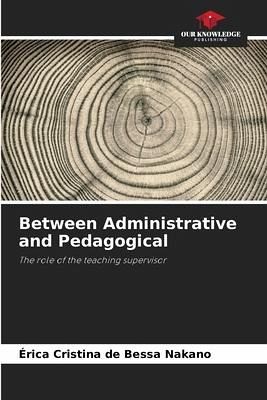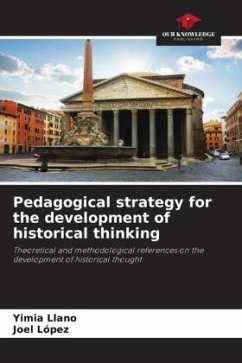
Between Administrative and Pedagogical
The role of the teaching supervisor
Versandkostenfrei!
Versandfertig in 6-10 Tagen
41,99 €
inkl. MwSt.

PAYBACK Punkte
21 °P sammeln!
Since the mid-1990s, the Secretary of Education for the State of São Paulo has put in place a series of measures that have profoundly changed the daily life of state schools. In this context, the teaching supervisor must monitor, guide and supervise the work done in schools to ensure that the guidelines are implemented. Several authors suggest that the teaching supervisors have a critical attitude towards educational policies and also in the performance of their work within the educational system. This book is the result of a research that analyzes the action of the teaching supervisor in the...
Since the mid-1990s, the Secretary of Education for the State of São Paulo has put in place a series of measures that have profoundly changed the daily life of state schools. In this context, the teaching supervisor must monitor, guide and supervise the work done in schools to ensure that the guidelines are implemented. Several authors suggest that the teaching supervisors have a critical attitude towards educational policies and also in the performance of their work within the educational system. This book is the result of a research that analyzes the action of the teaching supervisor in the state network of São Paulo, with regard to their different performances regarding the pedagogical and administrative work and, through the analysis of the conceptions of the teaching supervisor on some educational policies implemented, verify if they interfere in the choice of a less bureaucratic work. To answer these objectives, we conducted a bibliographic survey and semi-structured interviews with six supervisors of three Education Directorates in the interior of the state of São Paulo.












